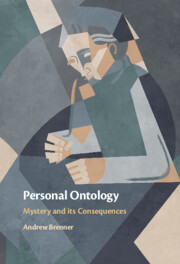Book contents
- Frontmatter
- Contents
- Acknowledgments
- 1 Introduction
- 2 Arguments against Substance Dualism, Part 1
- 3 Arguments against Substance Dualism, Part 2: Pairing Problems
- 4 Arguments for Substance Dualism
- 5 Interlude: What Exactly Is the Difference between Our Being Immaterial Souls and Our Being Composite Physical Objects?
- 6 Nonself, Part 1: Arguments against Our Existence
- 7 Nonself, Part 2: The Self Exists
- 8 Personal Ontology and Life after Death, Part 1: Resurrection, Reincarnation
- 9 Personal Ontology and Life after Death, Part 2: Mind Uploading
- References
- Index
6 - Nonself, Part 1: Arguments against Our Existence
Published online by Cambridge University Press: 07 March 2024
- Frontmatter
- Contents
- Acknowledgments
- 1 Introduction
- 2 Arguments against Substance Dualism, Part 1
- 3 Arguments against Substance Dualism, Part 2: Pairing Problems
- 4 Arguments for Substance Dualism
- 5 Interlude: What Exactly Is the Difference between Our Being Immaterial Souls and Our Being Composite Physical Objects?
- 6 Nonself, Part 1: Arguments against Our Existence
- 7 Nonself, Part 2: The Self Exists
- 8 Personal Ontology and Life after Death, Part 1: Resurrection, Reincarnation
- 9 Personal Ontology and Life after Death, Part 2: Mind Uploading
- References
- Index
Summary
This chapter examines some prominent arguments for the thesis that we do not exist. It is concluded that these arguments are not compelling. The arguments discussed include: the argument from impermanence; the argument from lack of control; the neither one nor many argument; and the argument from simplicity or parsimony. Most of these arguments are associated with the Buddhist philosophical tradition, and the argument from impermanence and the argument from lack of control are attributed to the Buddha himself in some of the earliest recorded teachings of the Buddha. The chapter therefore contains a discussion of whether these arguments are, within the context of the Buddhist intellectual tradition, really meant to undermine belief in our own existence, or whether they are rather merely intended to undermine belief in a certain sort of strong metaphysical postulate (i.e., the sort of unchanging and transcendent self postulated by the Upanishads).
Keywords
- Type
- Chapter
- Information
- Personal OntologyMystery and Its Consequences, pp. 108 - 142Publisher: Cambridge University PressPrint publication year: 2024

